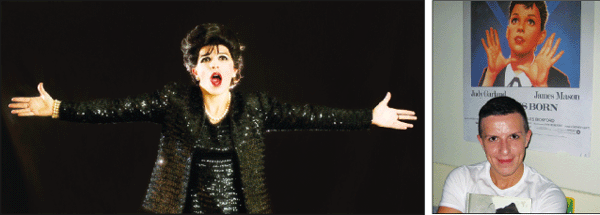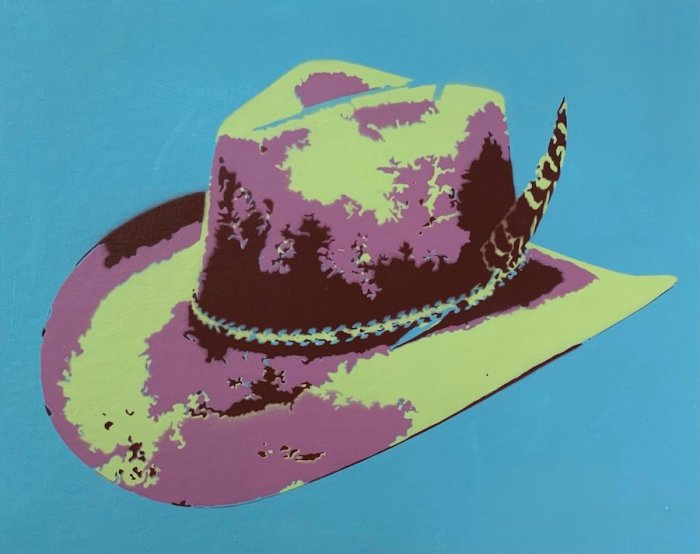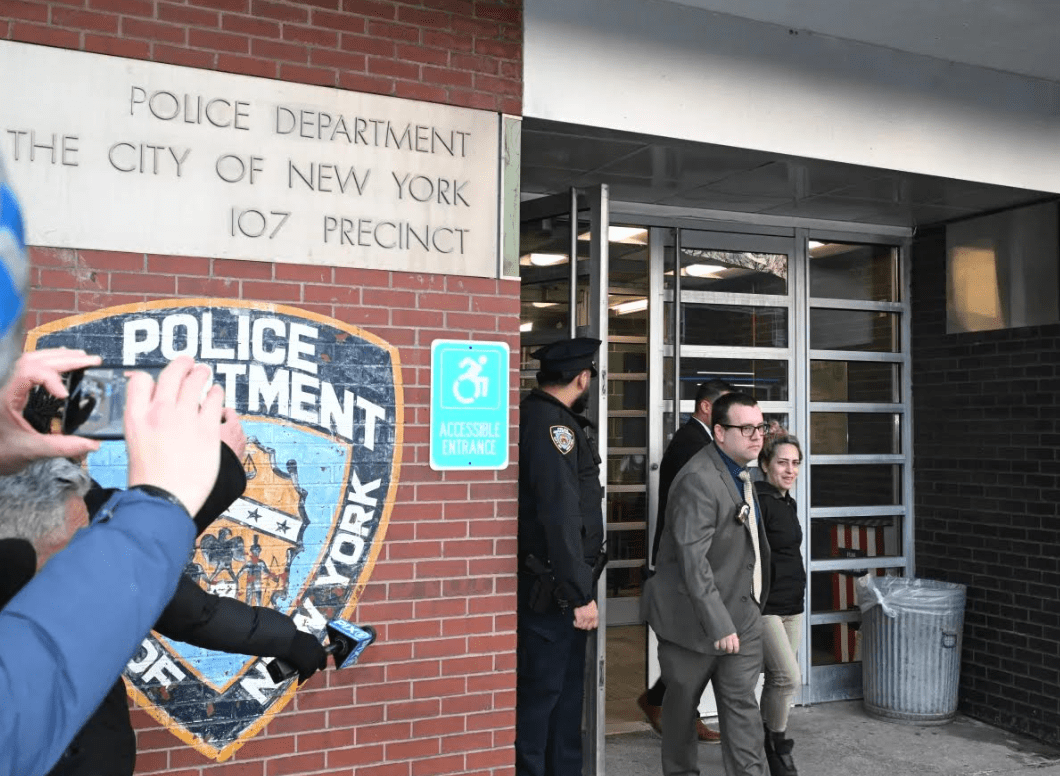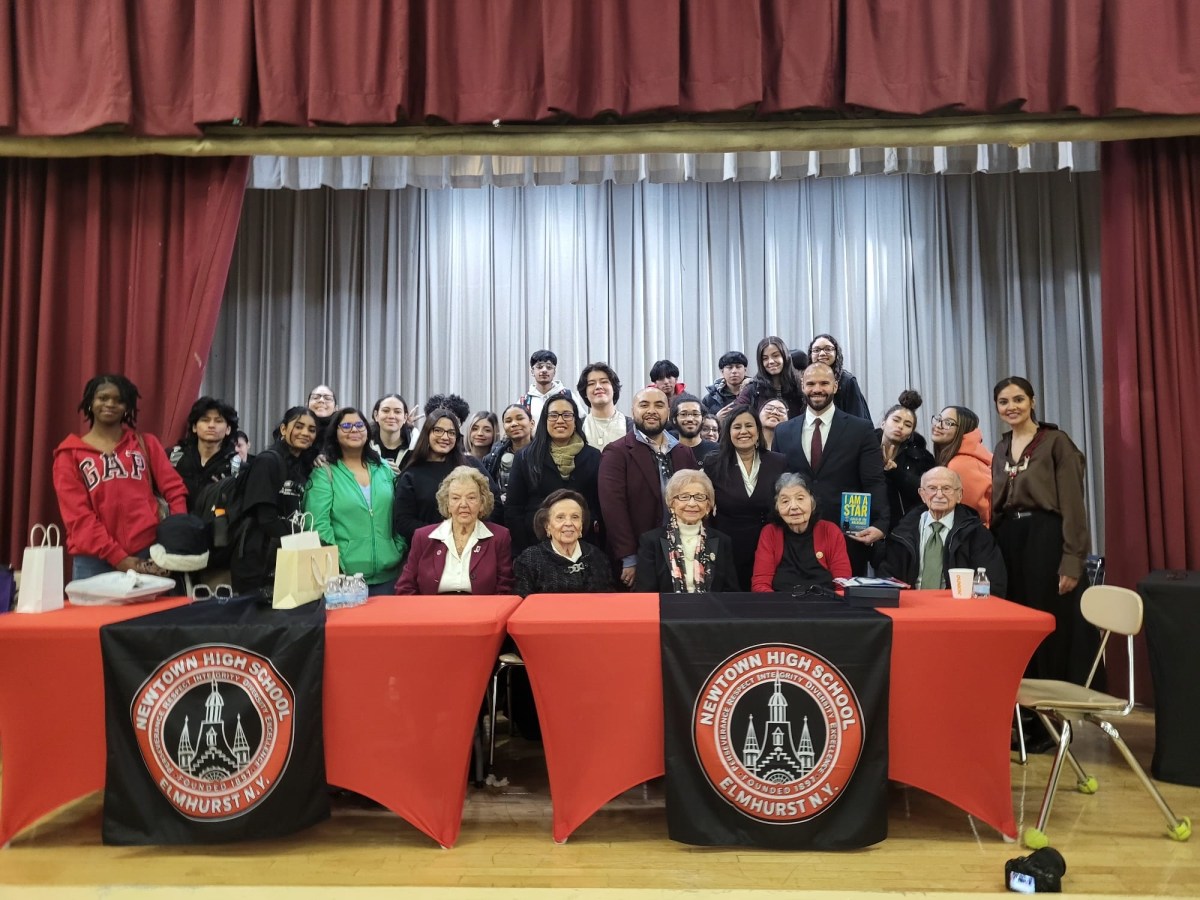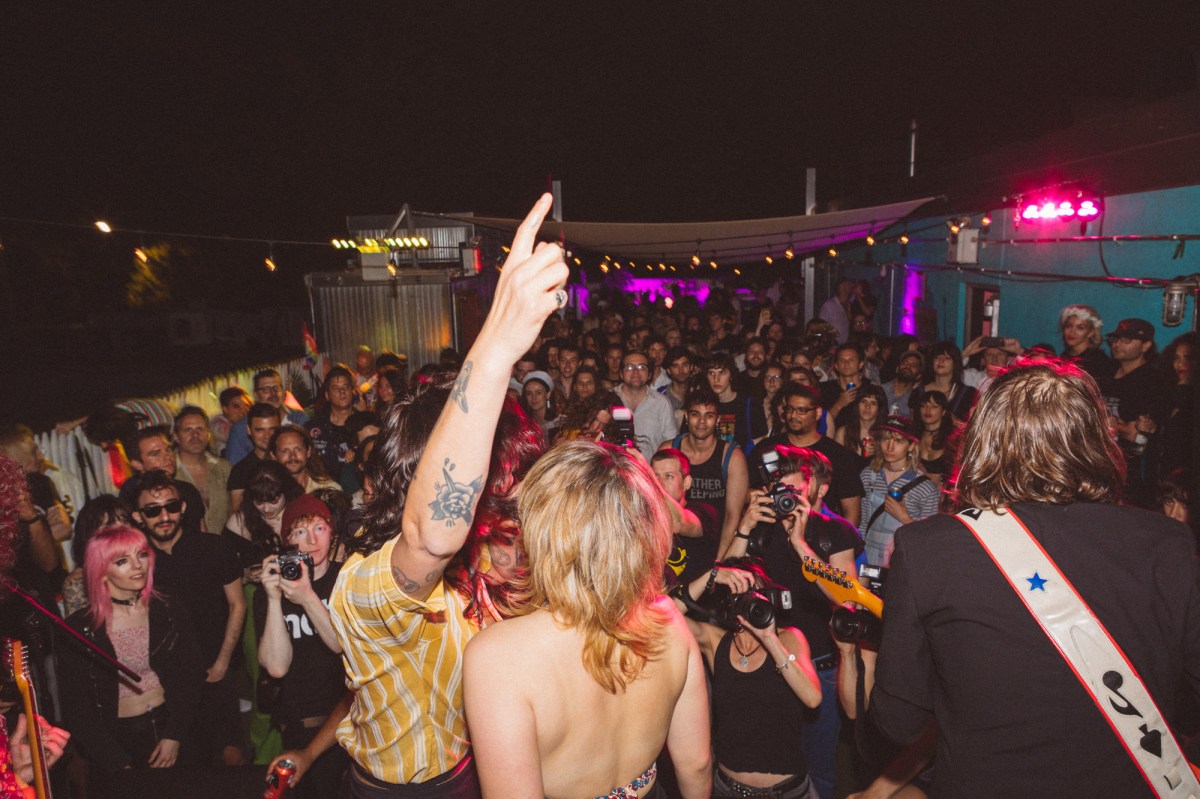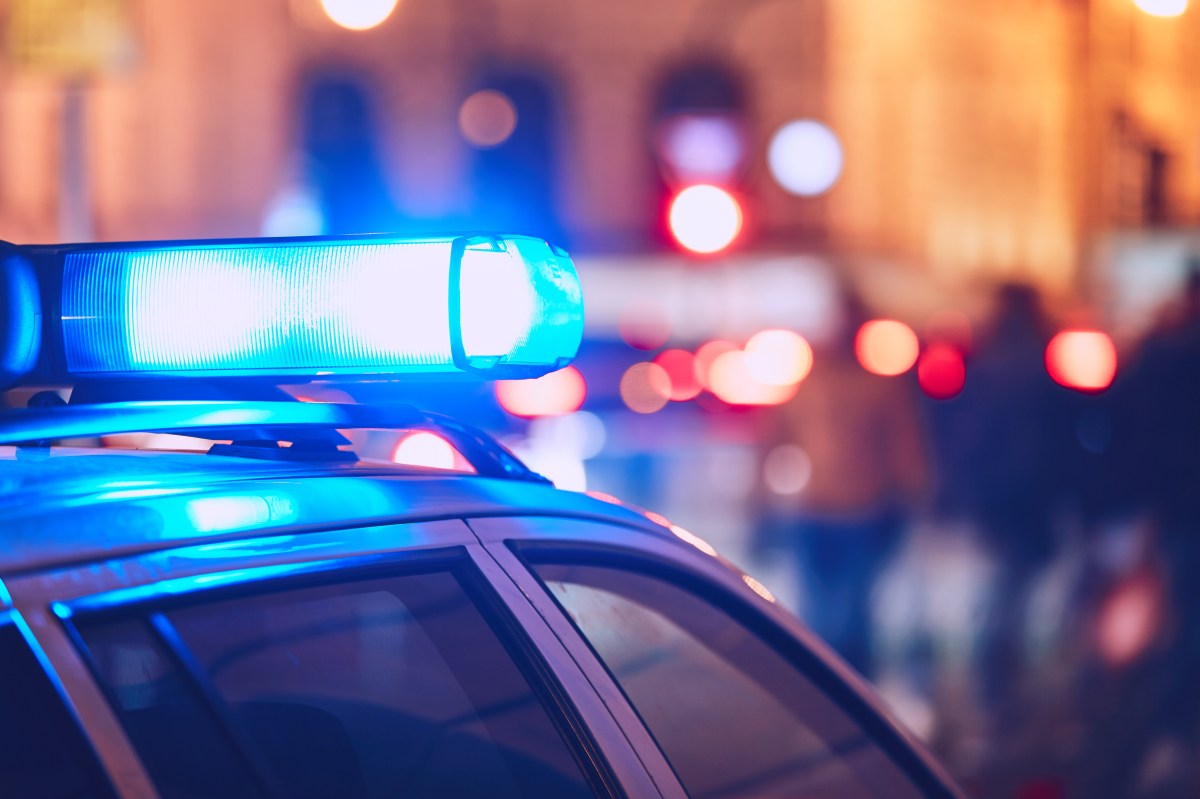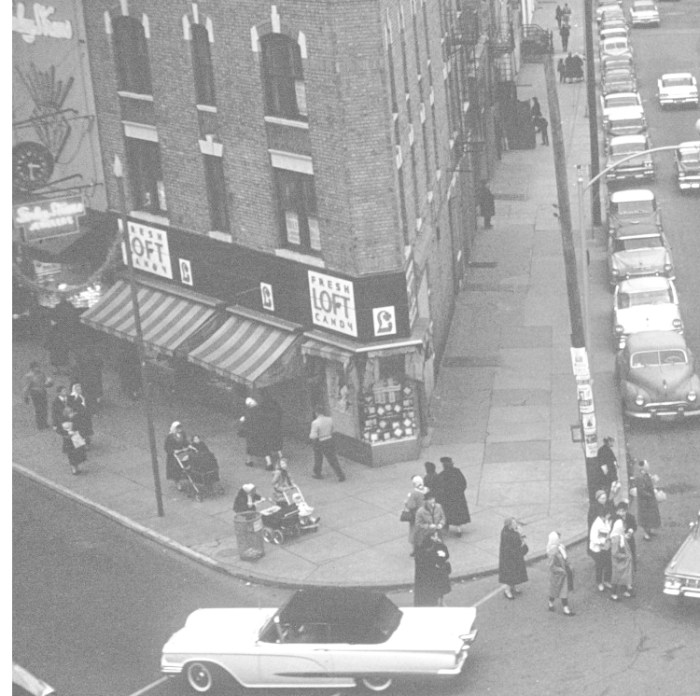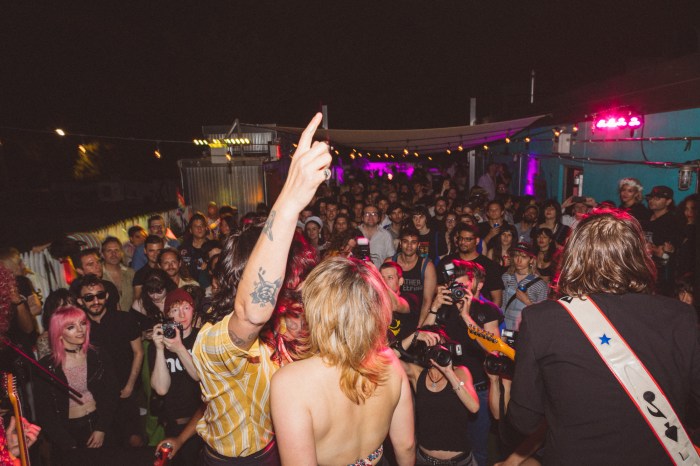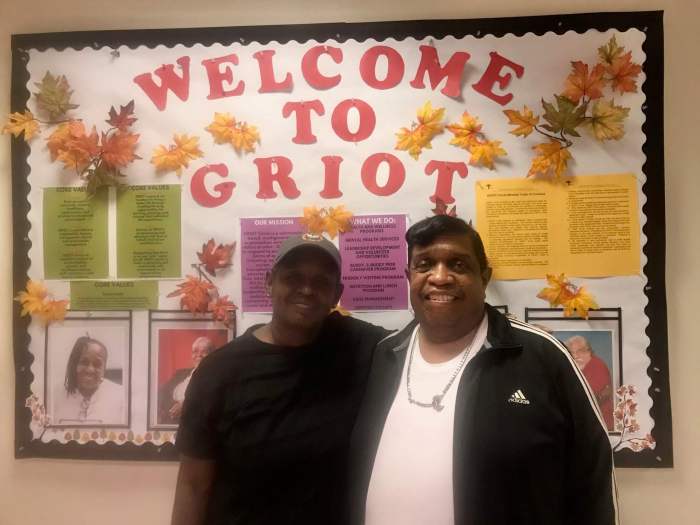By WILL McKINLEY
The creator of ‘Judy and Me’ talks about progress (or lack thereof)
JUDY AND ME
St. Luke’s Theater
308 West 46th Street
212-239-6200, judyandme.com
Judy Garland was one of the biggest stars in the world until her death in 1969 at the age of 47. Then she became larger than life.
A quarter century later, Peter Mac was a teenager on Long Island seeking solace from an abusive father and small-minded high school tormentors. The comfort he found in Garland’s movies, music and mythos forms the basis of “Judy and Me,” a touching coming-of-age story with a unique twist. Mac the playwright re-imagines the 1960s-era Garland as a modern-day guardian angel, guiding Mac’s fictional alter ego Anthony through his troubled teen years. And Mac the performer plays the forever 40-something Garland in drag, with surprising subtlety and nuance.
“Judy and Me” is like a gay variation on “It’s a Wonderful Life,” with the spectral Garland mentoring the young man (delightfully played by the Alfalfa-esque Christopher Brick) through his darkest hours. And who better to guide a sensitive young performer through a rough patch than a former sensitive young performer whose entire life was a rough patch?
The autobiographical drama, which began life at the Duplex and later enjoyed an extended run at Rose’s Turn, addresses heavy issues like homophobia, domestic abuse and suicide, but with a light tone that never devolves into preachiness. Charles Tolliver directs a consistently strong cast, including Basil Meola, Chris McCabe, Elyse Beyer and Jean Ann Kump as Mac’s “Laaawn Guyland”-accented mom. I spoke with Peter Mac at St. Luke’s Theater, on the set meant to approximate the bedroom of his youth.
WILL McKINLEY: What are you feeling right now, moments after the show?
PETER MAC: Relief, to be out of the costume, out of the heels, out of the makeup.
What was it about Judy Garland that meant so much to you as a kid?
I attribute her voice, her films and her wit to my survival. I channeled everything that was going on at home and at school into that. She provided so much joy to me when I was going through a really tough time.
Did you lose people from your life when you came out?
My parents got divorced when I was 16, just around the time that I came out. My father left that summer. Luckily I had a mom who basically accepted it from the get go. She came to terms with it relatively easily.
At the Sizzler?
Yes. I came out at the Sizzler. That’s true.
Was the management aware of what was going on? Did they bring you a cake?
No, but we still go back every April to commemorate it. We sit in the same booth.
You grew up only 45 minutes from The Village. And yet, it’s a different world out there on Long Island.
In the city there is such a mixed bag of people, from all different walks of life. Nobody pays any mind to it. I’m not saying there isn’t homophobia in Manhattan, but I can walk down the street in drag and I’m not going to get beaten up. I could never do that on Long Island. I’d get the shit knocked out of me.
Do you attribute that to the Island’s blue-collar legacy?
I think so. I grew up in a very middle-income neighborhood: Italian, Irish, lots of macho guys. The school was a real football jock school. If you wanted to do theater you were pegged as gay whether you were or not.
Is it better there now?
A lady came to see the show last week, and introduced herself as a teacher from Sewanhaka High School. She said, “It’s just as bad as when you were there, if not worse.” She has to tell her students every day that the word fag is not an adjective.
Maybe you should plan a night for Sewanhaka students and alumni.
We had talkback during the previews and one guy in his 50s said he didn’t like the attempted suicide scene. And I said, “Maybe it’s good that it made you uncomfortable because that’s what people need to see.” People who are saying faggot, gaylord and queer need to know that it does take a toll, and that is the result: a 16-year-old boy who wants to slit his wrists.
On a national level, do you think things have gotten better for gay teens?
The abuse is still there. Matthew Shepard’s death (in 1998) was the impetus for me to start writing the show. And then in February of this year a 14 year-old kid named Lawrence King was shot and killed at school because he brought a Valentine’s Day card to another boy. That’s the reason this show came back. I believe that homophobia is on the rise again, due to the political climate in this country.
Terms like “San Francisco values” and “the real America” have gotten a lot of play recently. Do you think the tenor of the presidential campaign has reinforced certain prejudices?
I definitely think that’s true. I think John McCain is a very ugly human being. I can’t even bear to listen to anything the man has to say. As a gay man I can safely say that we’re at the bottom of the totem pole when it comes to our voices being heard. It’s still okay to hate us.
The show’s been open for a couple weeks now. Have you had any negative response?
There was an elderly gentleman and his wife who were obviously uncomfortable, talking throughout the show. When the two male leads began to make out on-stage, that was the straw that broke the camel’s back. He stood up and started spitting slurs at us, “I hate f—ing queers. I hate f—ing faggots.”
How did you handle that?
The boys were frightened out of their wits, but they kept playing the scene. As quietly as we could, the gentleman was escorted out. Then we called the cops. That’s all we could do.
Did you fear for the safety of your actors?
Definitely. He could have had a gun on him. He could have been one of these crazy fanatics. His wife stayed behind, until the end. She walked up to my partner, who’s also the producer of the show, and said, “You should know you’re all an abomination.”
You’ve experienced vandalism, as well.
Yes. Somebody took a sharp object and embedded the words “Queers at St. Luke’s” into the marquee of the theater.
Does that reinforce your mission for the show?
All of these events make me realize just how important the story is. That’s what we keep hearing from audiences, whether they’re gay, black, Jewish or any kind of minority. A lady who was very overweight told me she was picked on mercilessly every day at school. She related. A lot of straight people come up to me after the show and say, ‘I’m not gay, but this is my story.’ The show does seem to touch people, which is nice. Make people laugh and make people cry. It’s great. That’s why I’m an entertainer.
If Judy were here now, what would she say to you?
I think she’d say, “Peter, darling, thank you very much. I think you’re doing a marvelous job. And you’ve made it. You’ve finally made it over the rainbow.”



